Updated January 2023.
It seems that having a kitchen fire in halls of residence is as much a rite of passage as moving away from home for the first time, freshers week, dorm parties or stealing a traffic cone to wear as a hat.
Statistics show us that over 80% of students admit to taking unnecessary risks when living in halls, including things like ‘drunk frying’, misuse of appliances and drying clothes over a heater. All very common. All very risky.
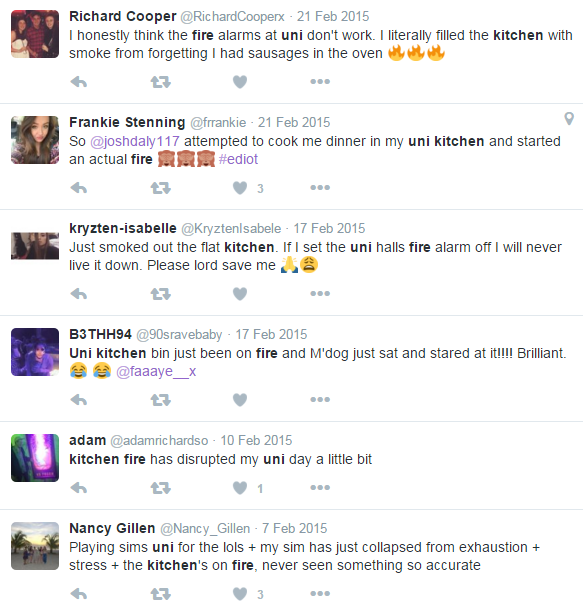
Students take to Twitter to talk about kitchen fires at their student accommodation
These contributing factors make students seven times more likely to have a fire, so it’s of vital importance that halls of residence ensure good fire safety practices and maintenance.
While it’s impossible to stop students from having a 3 am fry-up, you can reduce the risk with proper precautions such as making sure that smoke detectors are functioning, fire exits are kept clear and, of course, that your fire doors are up to scratch and are not wedged open.
And we know that fires happen (with alarming regularity) in halls of residence. In October 2015 a blaze at Bristol Universities Colston Street student accommodation started when an unattended pan of hot oil caught fire. Luckily, residents escaped unharmed but the incident left 120 fresher students homeless.
And in another well-documented fire in Bolton in November of 2019, ‘The Cube’, a third-party student accommodation went up in flames. It took 40 fire engines and 9 hours for the fire service to get it under control, leaving 217 students with no belongings or a place to live.
Dangerous Cladding
A subsequent investigation suggested that the cause of the fire at The Cube was most likely a discarded cigarette. But the biggest question being asked was why the fire spread in a way that so closely resembled the Grenfell tragedy. Many questions were raised about the cladding used on the development and, although the one used on The Cube (high-pressure laminate) was not the same type as the one used on Grenfell (aluminium composite material), it’s still classed as a flammable material.
Fire alarms ignored by students
“I was just sitting there, hanging about and not really doing anything. Then someone knocked on my door.”
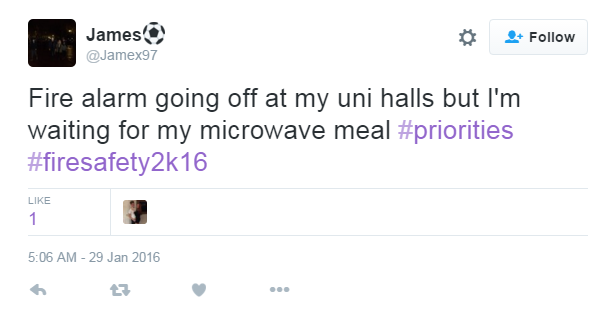
Fire alarms are often overlooked at uni halls
Not only was the choice of cladding an issue, but it seems that some students, having become complacent due to high numbers of false alarms, were slow to react to the alarm. The Manchester Evening News interviewed some of the students who had fled the building and found that many of them didn’t respond when the fire alarms went off.
“The fire alarm was going off but nobody was paying any attention. It goes off all the time, maybe every hour during the day because someone has done something in the kitchen and it’s set off the alarm.”
“If it had gone up in the middle of the night everyone would have slept through the alarm. We have slept through them before when there were non-emergencies.”
And it took over 12 hours before all 217 residents at The Cube were formally accounted for, with the official report on the fire stating that “The inability to undertake a roll call due to the use of the premises or to effectively confirm occupation levels and residents’ whereabouts, affected decision-making and prioritisation of search areas. For a number of hours, it was unsure if those unaccounted for from severely damaged areas of the building and hence unable to be searched, remained in situ.”
Universities urged to review fire safety
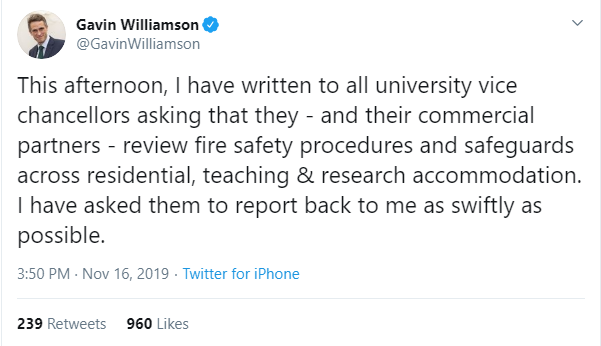
Gavin Williamson, Former Secretary of State for Education takes to Twitter after the Bolton uni accommodation fire.
The University of Bolton, although not liable, re-homed all of the students affected, placing them in hotels, and providing them with food and toiletries, costing an estimated £1.25 million. The blaze has since raised issues about the safety of residents in third-party student accommodation.
Whilst the causes and spread of the fire were being uncovered and investigated, Gavin Williamson, Secretary of State for Education, wrote to all universities urging them to review their own and their third-party providers’ fire safety procedures. This came after Union Leaders wrote to him raising concerns for students’ health and safety.
What can Universities and their providers do in order to be compliant and increase the safety of students?
Union Leaders proposed to Gavin Williamson that the following actions should be taken:
- Remove dangerous and flammable cladding on educational buildings.
- Carefully consider the use of building materials on all new builds and avoid the use of cladding known to be dangerous.
- Fit sprinklers in new accommodation and educational buildings.
- Review of all educational buildings to establish if standards are being met.
Other actions that can be taken include:
- Arrange for a fire risk assessment to be carried out by a professional body so that all risks can be identified and eliminated.
- Put in place systems that can ensure the safety of all students like Fireco’s Deafgard or Digital Messaging System.
- Carry out regular fire drills and evacuations with students so they are prepared if a fire does occur.
- Teach students basic fire safety awareness, for example, common causes of fires and preventative measures and how to use provided fire equipment.
Despite the impact and attention that the fire at The Cube had, we continue to see fires in student accommodation. In August 2020, a suspected arson attack led to student accommodation in Leeds being evacuated. In 2021, halls of residence in Hatfield were evacuated and over the course of 2022, we’ve seen dozens of fires across the country, such as The Forge in Sheffield, Willow Bank Road in Aberdeen and many more. As recently as October this year, around 500 students have been forced out of accommodation in Lincoln at the cost of £250k to the Univesity of Lincoln itself, after a risk assessment identified numerous issues with the building.
And of course, it’s not just the cost and disruption that this kind of student displacement can cause. There’s also the cost of cleaning up and repairing fire damage to consider, often an expensive and time-consuming process that can cost thousands, if not millions of pounds to deal with.
Fireco is here to make compliance easy. Whether it’s ensuring bedroom doors are held open safely, identifying and replacing worn and dangerous fire doors or helping to optimise your roll call process, if you need help with fire safety in your university or accommodation facility, contact us today.

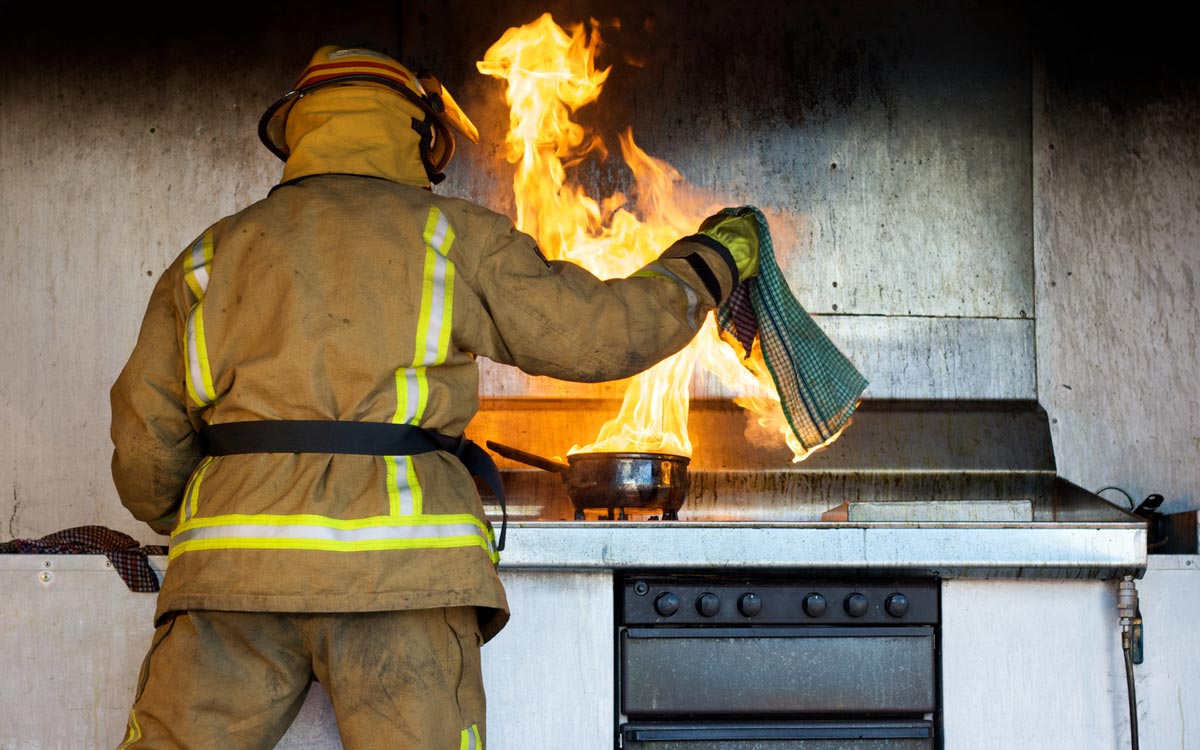
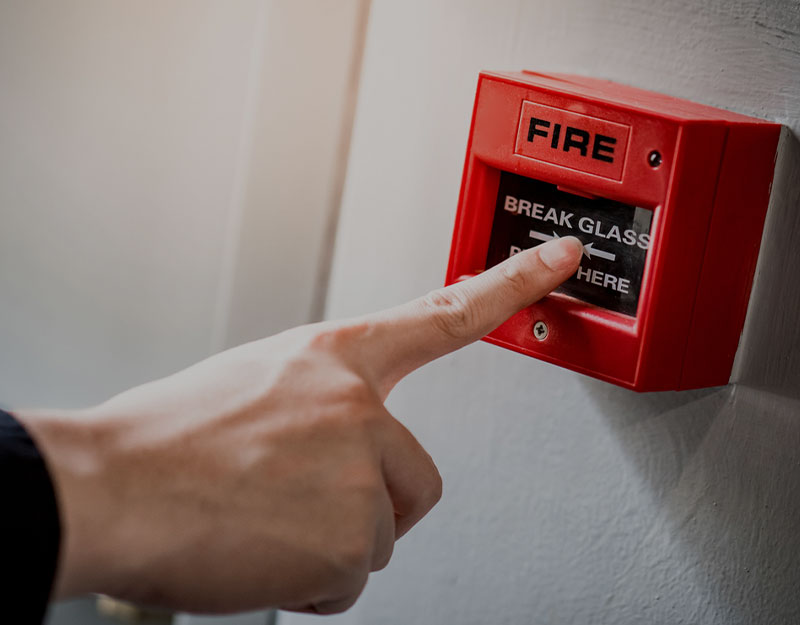
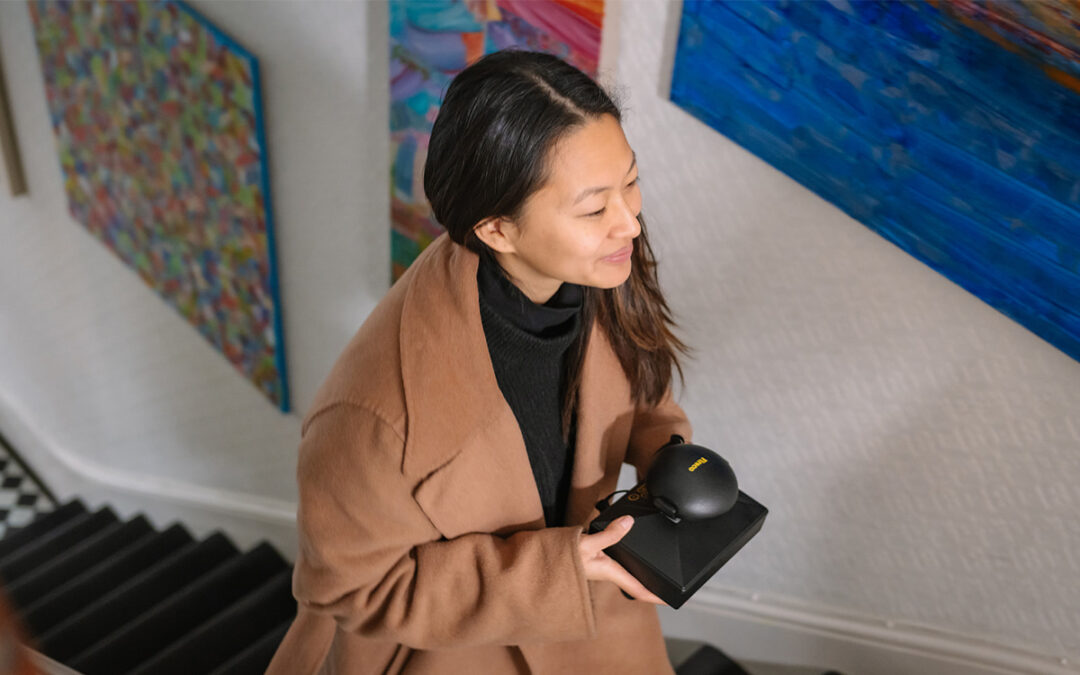


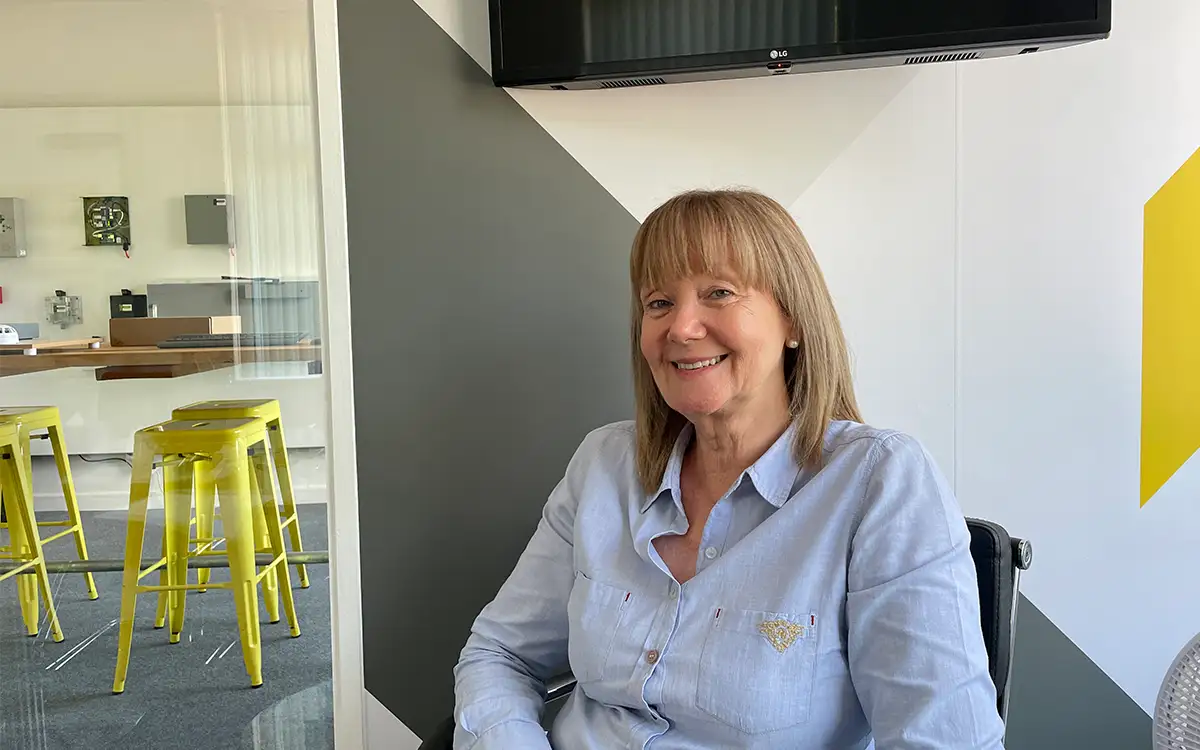
0 Comments
Trackbacks/Pingbacks